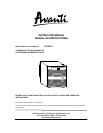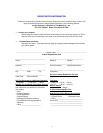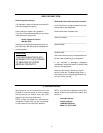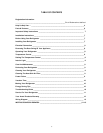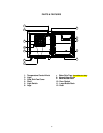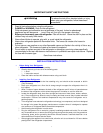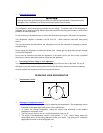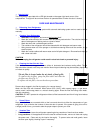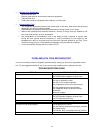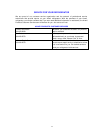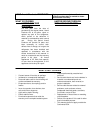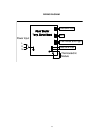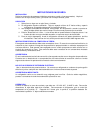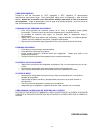
10
? Moving Your Refrigerator
? Remove all the food.
? Securely tape down all loose items inside your refrigerator.
? Tape the door shut.
? Protect the outside of refrigerator with a blanket, or similar item.
? Energy Saving Tips
? The refrigerator should be located in the coolest area of the room, away from heat producing
appliances, and out of the direct sunlight.
? Overloading the refrigerator forces the thermoelectric cooling system to run longer.
? Reduce door openings and extended searches, remove as many items as needed at one
time, and close the door as soon as possible.
? One characteristic of thermoelectric units is the length of time it requires to recover from
having the door opened and shut frequently. It may be necessary to wait longer for the
temperature to return to its former level once the door has been opened for too long. This is
normal for the type of unit. Thermoelectric technology costs just pennies to operate.
? It is environmentally friendly due to the lack of CFC’s.
PROBLEMS WITH YOUR REFRIGERATOR?
You can solve many common refrigerator problems easily, saving you the cost of a possible service
call. Try the suggestions below to see if you can solve the problem before calling the servicer.
TROUBLESHOOTING GUIDE
PROBLEM POSSIBLE CAUSE
Refrigerator does not operate.
Not plugged in.
The circuit breaker tripped or a blown fuse.
Refrigerator is not cold enough. The room temperature is hotter than normal.
The door is opened too often.
The door is not closed completely.
The temperature control is not set correctly.
The door gasket does not seal properly.
The refrigerator does not have the correct
clearances.
Abnormal voltage.
The light does not work.
Not plugged in.
The circuit breaker tripped or a blown fuse.
The LED light has burned out.
Vibrations. Check to assure that the refrigerator is level.
The door will not close properly.
The refrigerator is not level.
The door was reversed and not properly installed.
The gasket is dirty.
The shelves, bins, or baskets are out of position.



